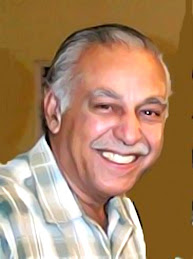Working Class Is Awakening the World Over
Rajiv Dimri interviewed George Mavrikos, General Secretary of the World Federation of Trade Unions – WFTU, at the ILC.
Greece is witnessing a major upsurge at the present time. Can you tell us more about these movements of the Greek working class?
The Greek bourgeoisie, the social democrat government, and its allies the conservative party in cooperation with the EU, the IMF and the World Bank have unleashed an assault on the Greek working class on the pretext of the global capitalist crisis. A range of anti-labour laws are being introduced to curtail workers’ rights - regarding working hours, salaries, social security, pensions, and tax policy.
The Greek working class has been thwarting these moves. Last year, Panergatiko Agonistiko Metopo (PAME) – the All Workers’ Militant Front - organized more than 13 massive general strikes successfully. This year it continues to mobilize the working people and unite them with other progressive forces in a popular front against the anti-labour measures. The main slogan is: “We refuse to pay for their crisis, deficits and debts - those who created the crises should pay!” It is the plutocracy and its parties, PASOK (social democrats) and N.D. (conservatives) who are pushing for the anti-people measures.
The 16th World Trade Union Congress held at Athens in April this year turned into an international forum of solidarity with the Greek people.
What are the trends you see in the international working class movement today?
After WWII, a balance was created between the two sides, leading to a relatively favourable situation for the working people and their struggles. Today the current balance of forces is against the people and the workers.
But this year, we have nevertheless experienced great struggles in response to the global economic crisis. The world over, the ruling class is trying to force people to bear the burden of its crisis – and this has sparked off serious resistance in Greece, Portugal, Spain, France, Italy, many countries of Asia, Africa and Latin America, as well as in Mexico, and by immigrant workers in the US. Recently in Madison, Wisconsin, in the US, there was a significant battle by public employees fighting to defend their right to collective negotiations and their salaries.
What can we conclude from these developments? It is clear that major opportunities of empowerment and awakening for the working and the popular masses have been created. Class struggle is intensifying. The examples in Tunisia, Algeria, Egypt, Bahrain, Libya, Yemen, Iran, Jordan, Pakistan etc. confirm this. The revolt of the people of Egypt, regardless of its future outcome, shows that people are the real protagonists of history.
These positive developments coexist with equally serious challenges. One serious challenge is the lack of unity and coordination between the leaderships of many trade unions at national level.
To exploit the new possibilities which are opening up, and for the movement to pass to another level of struggles, we need to critically assess all these developments and to devise effective tactics to eliminate the barriers in every country. We must learn from struggles of the past.
What is WFTU’s approach to the developments in the Arab world?
Workers and people of the Arab world are rising up against dictatorships which suppressed the people and stole their wealth. Poverty, unemployment, discrimination, lack of freedom is what these regimes brought to the working people. These regimes were also subject to imperialist powers led by the USA, which is pursuing its project of a “New Middle East”, aiming to divide the Arab people into conflicting states. Their main aim is to control petroleum and the natural resources of this region.
The multiple uprisings proved that the working class and the popular can shape their future. WFTU has always supported the unity of the Arab world. It has always supported the struggle of the Palestinians for a free and independent state with Jerusalem as its capital, as well as Syria and Lebanon. It has always stood for the liberation of the occupied lands against Israeli occupation. We are against every imperialist intervention and invasion in Libya and Syria.
What is WFTU’s plan of action in the days to come?
WFTU held the historic 16th World Trade Union Congress at Athens in April. This was an open, democratic, internationalist and militant Congress with the participation of 828 delegates from 101 countries and 115 speakers.
The next big step will be the WFTU International Action Day on October 3, which coincides with the founding day of the WFTU on October 3, 1945. The key objectives of this Action are:
- 35 hours of work: i.e 7 hours per day and a 5-day working week, and better wages
- Public social security for all
- Collective bargaining, collective agreements
- Trade union and democratic freedoms
- Solidarity with the Palestinian people
The International Day of Action will mark the start of new protests against privatization and layoffs. It will mark the engagement of all social strata against the policies of the monopolies and multinationals.
What are WFTU’s proposals for democratizing the ILO?
The WFTU had been repeatedly demanding a change in the system of the elections for the Governing body of the ILO, in order to provide proportionate representation to all international organizations such as WFTU, ICATU, OATUU, ACFTU. WFTU demands that the monopoly of the International Labour Organisation by one organisation (ITUC) should stop, and all international trade union organisations be treated fairly, equitably and without any discrimination. The prevailing discrimination goes against the prestige of ILO and the credibility of its decisions.
Monday, August 1, 2011
Subscribe to:
Post Comments (Atom)
.jpg)
No comments:
Post a Comment